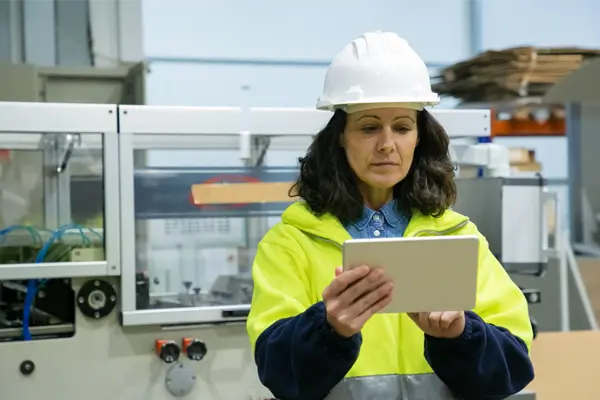
The role of AI in reducing hydrocarbon emissions
As the world faces growing concerns over climate change and environmental degradation, the need for innovative solutions to reduce hydrocarbon emissions has never been more critical. One of the most promising technologies emerging in this area is artificial intelligence (AI). AI is transforming industries by optimizing processes, increasing efficiency, and minimizing environmental impact. In the hydrocarbon sector, AI is playing a pivotal role in reducing emissions and fostering sustainability.
AI in Emissions Monitoring and Management
One of the most significant ways AI contributes to reducing hydrocarbon emissions is through enhanced monitoring and management. Traditional methods of emissions tracking often rely on manual processes and outdated technology, which can be inefficient and prone to error. AI-powered systems, however, can continuously monitor emissions levels in real-time, providing accurate data and insights that allow operators to detect and address issues more quickly.
Machine learning algorithms can analyze data from sensors and other monitoring devices to identify patterns and trends in emissions. This enables the prediction of potential leakages or inefficiencies before they become critical, helping companies reduce emissions and avoid costly fines or reputational damage. Real-time monitoring also ensures that any deviations from regulatory limits are detected immediately, allowing for prompt corrective actions.
Optimizing Energy Consumption
AI can also optimize energy usage in hydrocarbon extraction and processing operations, significantly lowering emissions. AI-powered systems can analyze vast amounts of operational data to optimize equipment settings, manage energy flow, and even predict energy demand. By ensuring that energy is used efficiently, AI minimizes waste and reduces the need for excess energy generation, thereby lowering carbon footprints.
For instance, AI algorithms can optimize the combustion process in refineries, making sure that fuel is burned at the most efficient rate. This results in lower CO2 emissions and improved operational efficiency. Furthermore, AI can optimize the routing of energy between different parts of a refinery or processing plant, ensuring that energy is delivered where it is needed most and preventing unnecessary energy loss.
Predictive Maintenance for Emission Reduction
Another way AI is reducing emissions is by improving predictive maintenance practices. In the past, maintenance was often reactive, relying on equipment failures to trigger repairs. This could lead to inefficiencies and the release of excess emissions when equipment operated beyond its ideal parameters.
With AI, predictive maintenance uses machine learning models to forecast when equipment is likely to fail or when its performance is declining. By scheduling maintenance before a failure occurs, operators can ensure that equipment runs efficiently, minimizing the chance of emissions spikes caused by malfunctioning machinery. Regular, proactive maintenance also extends the lifespan of equipment, further contributing to long-term sustainability.
Carbon Capture and Storage (CCS) Enhancement
AI is also being integrated with carbon capture and storage (CCS) technologies to enhance their effectiveness. CCS plays a crucial role in reducing carbon emissions from hydrocarbon operations by capturing CO2 produced during combustion processes and storing it underground. AI can improve the efficiency of CCS systems by monitoring CO2 levels, predicting the best storage locations, and managing the flow of CO2 to prevent leaks.
AI-driven models can simulate various geological formations to identify the most suitable sites for CO2 storage, increasing the safety and reliability of the entire process. These advancements make CCS a more viable solution for large-scale emission reduction, particularly in industries where direct emissions are challenging to eliminate entirely.
AI in Green Transition and Future Innovations
As the hydrocarbon industry moves toward a greener future, AI is becoming an essential tool in achieving sustainability goals. From emissions monitoring to optimizing energy use and enhancing carbon capture technologies, AI provides a comprehensive approach to reducing hydrocarbon emissions. The integration of AI in hydrocarbon operations will continue to evolve, unlocking new opportunities for reducing the environmental impact of this vital industry.
In the long term, AI has the potential to revolutionize how hydrocarbons are extracted, processed, and consumed, ensuring that the industry plays a key role in the global effort to combat climate change. By embracing AI, the hydrocarbon sector is making strides toward a cleaner, more sustainable future for all.
Subscribe